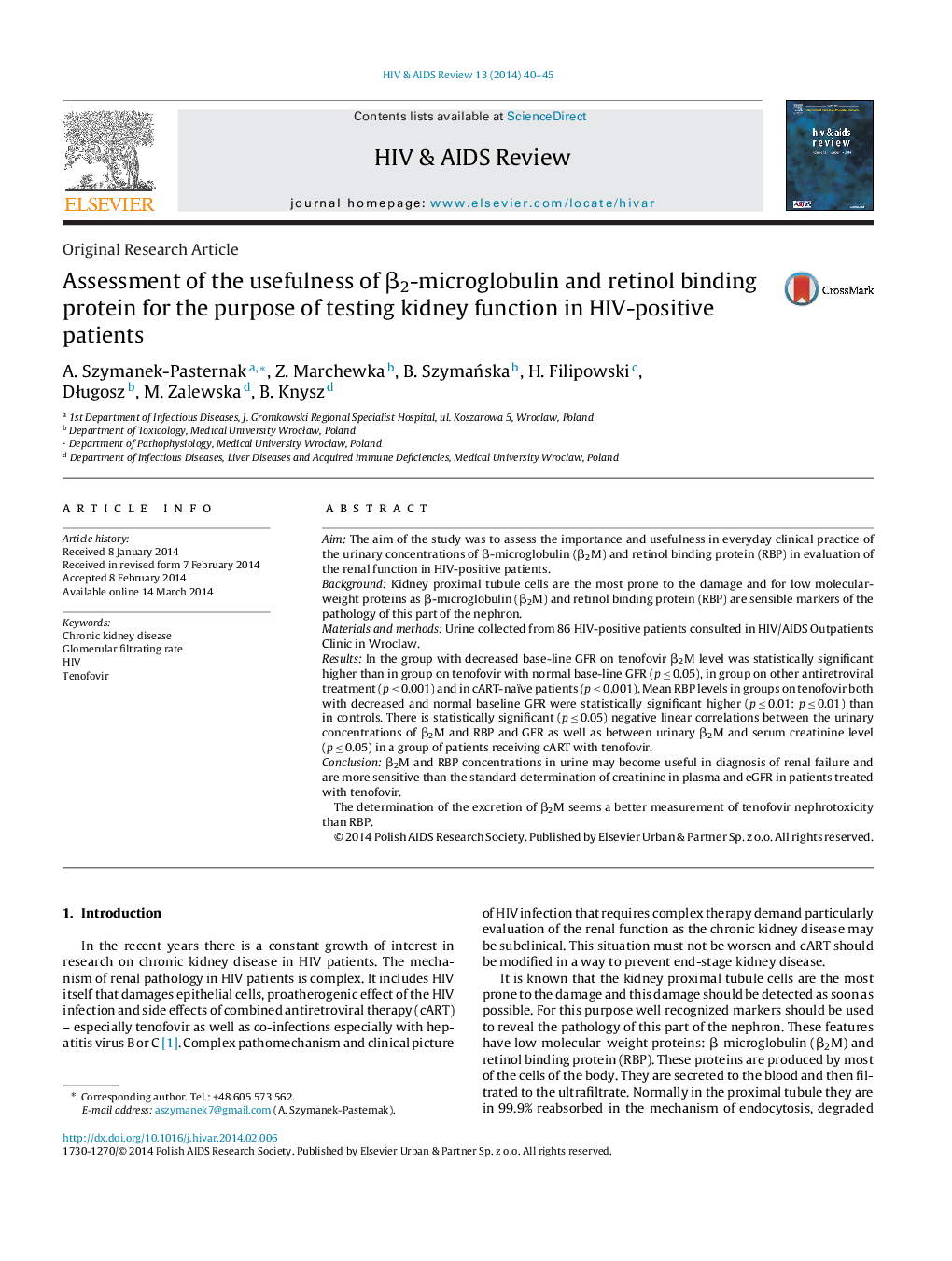| Article ID | Journal | Published Year | Pages | File Type |
|---|---|---|---|---|
| 3332341 | HIV & AIDS Review | 2014 | 6 Pages |
AimThe aim of the study was to assess the importance and usefulness in everyday clinical practice of the urinary concentrations of β-microglobulin (β2M) and retinol binding protein (RBP) in evaluation of the renal function in HIV-positive patients.BackgroundKidney proximal tubule cells are the most prone to the damage and for low molecular-weight proteins as β-microglobulin (β2M) and retinol binding protein (RBP) are sensible markers of the pathology of this part of the nephron.Materials and methodsUrine collected from 86 HIV-positive patients consulted in HIV/AIDS Outpatients Clinic in Wroclaw.ResultsIn the group with decreased base-line GFR on tenofovir β2M level was statistically significant higher than in group on tenofovir with normal base-line GFR (p ≤ 0.05), in group on other antiretroviral treatment (p ≤ 0.001) and in cART-naïve patients (p ≤ 0.001). Mean RBP levels in groups on tenofovir both with decreased and normal baseline GFR were statistically significant higher (p ≤ 0.01; p ≤ 0.01) than in controls. There is statistically significant (p ≤ 0.05) negative linear correlations between the urinary concentrations of β2M and RBP and GFR as well as between urinary β2M and serum creatinine level (p ≤ 0.05) in a group of patients receiving cART with tenofovir.Conclusionβ2M and RBP concentrations in urine may become useful in diagnosis of renal failure and are more sensitive than the standard determination of creatinine in plasma and eGFR in patients treated with tenofovir.The determination of the excretion of β2M seems a better measurement of tenofovir nephrotoxicity than RBP.
